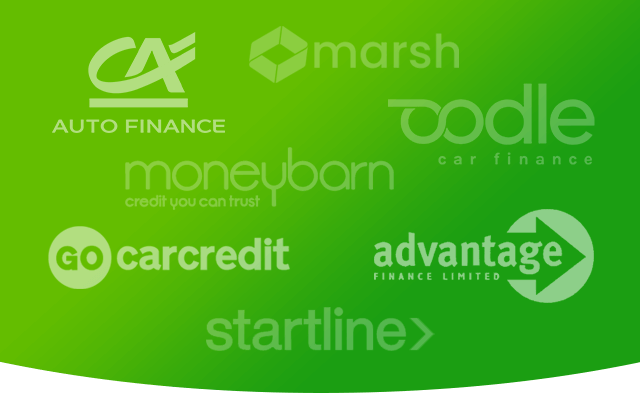
Car Finance
A Stoneacre Guide
When purchasing a big-ticket item like a new car, not everyone has the ability to pay up in full.
This is where car finance comes into play…
Being able to break down such a cost into bite-sized payments makes buying a new car so much more affordable to many.
There are several aspects to car finance and, at first, can sometimes be a tough topic to grasp.
And so we’re about to go in-depth, covering several key areas of car finance, helping potential car buyers get a solid understanding of how to approach it.
Table of Contents

How Car Finance Works
If you’re looking to finance a car for the first time, exactly how car finance works and how you obtain it could be a bit of a mystery.
How car finance works boils down to the following basic aspects:
- Cost of the car is broken down into monthly payments
- Payments are made of over a number of years; usually between 3-5 years
- A deposit is typically put down at the start, which can help reduce the monthly cost
- A rate of interest is placed upon the agreement as a charge for credit
- Depending on the finance type, you’ll either own the car when all payments are made, or you’ll have options of what to do next
There are several car finance types - most prominently used are Hire Purchase (HP) and Personal Contract Purchase (PCP).
HP is great for those who like to own their cars, while PCP is perfect for anyone looking for flexibility in their car finance deal.
Applying for car finance
In order to buy a car on finance, an application must be made at the point of purchase - this can be done through the company selling the car or via a third party.
The main part of the process is a credit check, where a lender will consider whether you’re a suitable applicant for finance.
Here at Stoneacre, we work with a number of flexible lenders when it comes to financing used cars, while the manufacturers we represent all utilise specific finance companies when someone is financing a new car.
When it comes to the former, you can even apply for finance ahead of looking for a car - this enables you to enter a dealership knowing how much you have been approved for, and you can work to a specific budget.
You’ll need a few pieces of personal information when it comes to applying for car finance, including:
- Address details (min. three years’ worth)
- Employment details (min. three years’ worth)
Once your application for car finance is complete, you’ll be able to finalise the deal, and it will just be a matter of waiting for your car to be ready for pick up.
Related Resources

Car Finance Options
There are a few car finance types you can choose from when it comes to financing your next vehicle.
By far the most popular ways people will buy a car on finance is through either Hire Purchase or Personal Contract Purchase.
Hire Purchase (HP)
Commonly used by car buyers when purchasing a used vehicle, HP is a straightforward car finance option that’s perfect for those looking for full ownership.
A deposit is typically put down at the start of an agreement, then monthly payments follow for the agreed term.
Then, once the final payment has been made, ownership of the vehicle is complete.
Personal Contract Purchase (PCP)
PCP car finance is a more flexible option when compared against an HP deal, and differs in a few ways.
Much like HP, a PCP contract usually starts with a deposit and subsequent monthly payments.
However, unlike HP, these payments only pay towards a certain amount of the car’s value, as much of the cost is tied up in what is called a GMFV (or sometimes a ‘Balloon Payment’).
So effectively, the monthly payments are only covering the cost of the car’s depreciation during the contract term.
Because of this, the monthly payments are typically cheaper when compared to an HP deal for the same car.
Other differences to HP include an agreed annual mileage for the length of the contract, and potential excess charges for mileage and wear & tear.
When all the monthly payments have been made, and only the GMFV is left, there are a few options available:
- Pay the GMFV and take full ownership of the vehicle
- Use any equity in the car to use it as a part exchange for a new one
- Hand the car back and walk away (potential charges for excess mileage and wear & tear can apply here)
How you decide on which option you choose will largely depend on the value of the car.
The GMFV is the car’s Guaranteed Minimum Future Value - this won’t ever change at any point once it’s been set.
When all monthly payments have been made, and the car’s actual value is more than the GMFV, then you’ll be in equity.
Example: the car is worth £7,500 and the GMFV is £5,000 - you’ll be in £2,500 of equity.
This difference can then be used towards the deposit of a new car.
If the car is worth the same or less than the GMFV, then you might just be best handing it back.
Of course, if you wish to own the car, then you’ll need to pay the GMFV to take full ownership.
Other car finance options
Personal Contract Hire (PCH) - this is a way to finance a car where interest costs do not play a part, and you’re effectively paying to use the car.
As such, there is no option to take ownership at any point, and the car is handed back when the contract finishes.
Other than that, it’s similar to HP & PCP, in that a deposit is made at the start, and then monthly payments are made for an agreed term.
You may see wording involved with a PCH deal along the lines of 3+35 - this is the Profile:
The first number is the amount of monthly payments that make up the deposit (or ‘initial rental’ as it can be worded)
The second number is the amount of monthly payments that will follow.
Example: If a single monthly payment is £250, and the Profile is 3+35, then the initial rental is £750 (3x £250) and will be followed by 35 separate monthly payments of £250.
Conditional Sale - CS finance is pretty much exactly the same as Hire Purchase.
The only real difference is that, with HP, there is a small Option to Buy fee at the end that, once paid, makes the car yours.
CS finance, meanwhile, goes without this and instead splits out the deal into just monthly payments that allows you ownership once all are paid.
In summary:
- Hire Purchase: straightforward option for those who want car ownership
- Personal Contract Purchase: flexible option for those who want cheaper payments
- Personal Contract Hire: great for those who want a short-term contract and no ownership
- Conditional Sale: another easy option to ownership
Related Resources

Car Finance Eligibility
One of the biggest aspects to car finance is getting accepted for it in the first place - and that largely comes down to eligibility.
Eligibility for credit is a big step in the route to car finance, as this is the stage when you submit details to the lender to see what kind of deal you can get.
Credit score
At the heart of any application for credit, a person’s credit score (or credit rating) makes a big difference to the finance deal they get - or if they are eligible for finance at all.
There are several agencies who can tell you your credit score - often for free - and it’s always good to know what yours is so you know where you stand when applying for new lines of credit.
Assuming you are eligible for car finance in general, the interest rate you are offered will be based predominantly on your credit score - those with better scores will be offered better rates and vice-versa.
Your credit score will also affect the maximum amount you’re able to borrow as a whole.
‘Soft search’ v ‘hard search’
When applying for car finance, it’s possible that you’ll go through two stages - one to check your initial eligibility and another later down the line to do a full credit check.
The former is referred to as a Soft Search, and takes a snapshot of your credit score as well as your general affordability to take on a new line of credit.
Meanwhile, a Hard Search comes at the end of your application, and is a full search of your credit file.
The first of those searches does not appear on your credit profile, and so cannot be seen by other lenders - this means that your credit score will not be harmed by a Soft Search, regardless of the outcome.
However, with a Hard Search, as this is a full search on your profile, this will remain visible to all prospective lenders for around 6-12 months - if you are turned down for credit, this will also show against your profile.
Pre-approved car finance
As already touched on, it is possible to get pre-approved for car finance before heading into a dealership for a new car.
At Stoneacre, this journey includes both Soft & Hard Searches as described above.
Our online form performs an initial check of your car finance eligibility, before you’re put in touch with a dedicated coordinator who will take you through the rest of the process on the way to a full credit check.
If you receive car finance pre-approval, you will be given a maximum lending amount that you can then use as a budget for a car at one of our showrooms.
Guaranteed car finance
It should be noted that no one is guaranteed to be approved for car finance - even those with top credit scores.
Car finance lenders require applicants for credit to hit certain criteria, and they won’t be happy to accept just anyone for finance.
At the end of the day, lending money to others is a risk, and sometimes the risk can be too much, and so people will unfortunately get turned down for credit for one reason or another.
To best position yourself to get accepted for car finance, it’s always good to ensure your credit rating is strong, and you have been in your job and home for three years or more.
It is also important that your outgoings aren’t higher than your income.
Related Resources

Bad Credit Car Finance
Those with credit scores that don’t look too favourable can be forgiven for thinking that getting car finance could be a tough ask.
However, it’s important to know that car finance is very possible even if you have bad credit. Though it’s equally pertinent to be aware of the limitations.
What does having bad credit mean?
While the bracket will work differently on where you check your credit score, to have bad credit is to have a score that is fairly low on the scale.
For example, on Experian, anything between 561-720 (out of 999) is seen as ‘Poor’, which is effectively a bad credit score.
If you fall into such a bracket, being approved for finance is still possible, but you can be affected in the following ways:
- Your rate of interest will be higher than normal
- The amount you’re able to lend will be reduced
What leads to having bad credit?
Typical instances that can lead to having bad credit include such aspects as:
- Missed payments
- Defaults
- CCJs (County Court Judgement)
- IVAs (Individual Voluntary Agreement)
- High use of credit
- Bankruptcy
While they don’t typically lead to a bad credit score, it can be useful to know that the following can see your credit score drop:
- Moving house
- Changing job
This is because lenders will see someone being in a job or a house for a sustained amount of time as being stable - so if you move jobs or home regularly, this can suggest instability.
Bad credit lenders
Something that allows us to help so many people with bad credit obtain car finance is the panel of lenders we are partnered with.
Many lenders we work with are flexible in nature, and are in a position to help those with a poor credit score get car finance.
As a broker, we’ll be able to work with you to find you a lender that suits your needs the best, including those who have bad credit and may have had trouble getting accepted for finance in the past.
Related Resources

Car Finance with Benefits
Some may think that getting a car on finance when on benefits is something that’s either particularly hard, or just impossible altogether.
However, while there might be a few more hoops to jump through compared to getting car finance ‘conventionally’, it is entirely possible to get credit when on benefits.
To be eligible for car finance when on benefits, you’ll need to be receiving one of the following:
- Universal Credit
- Housing benefits
- Disability allowance (DLA)
- Carers allowance
- Personal Independent Payment (PIP)
Pensioners & low income
Buying a car on finance is also a possibility for both pensioners and those with low income.
Pensioners - must have a full driving licence, and be on the electoral roll at their current address.
Low income - must have a monthly income of at least £1,000 after tax; a joint application can be made if you fall under this threshold.
Related Resources

Pay As You Go Car Finance
In a similar fashion to black box car insurance, pay as you go car finance is a way to get a new car for those who might struggle otherwise to get credit.
How does it work?
Based on a Hire Purchase contract, PAYG car finance works through the installation of a ‘black box’ in your car’s dash - this box will connect itself to your car’s computer, as well as with the lender via GPRS.
With that in place, as long as you make your car finance payments, the car will continue to run as normal.
However, in the event of a missed payment, the box can then disable your vehicle (only when it’s switched off and stationary).
Reminders about upcoming payments are sent out days before they are set to be received.
Additionally, the box itself will show a green light until a few days before payment is due, at which time it will turn red as a further reminder.
Once all payments have been made, ownership of the car is passed over to the driver.
Pros to PAYG car finance:
- Helps people obtain car finance who might otherwise struggle
- Can help improve a person’s credit score by showing responsible lending
Considerations to be made:
- Failing to make a payment can result in your car being disabled
- Black box stays in place till all payments are made
- Rate of interest will likely be higher as applicant will be of a higher risk
Related Resources

Car Finance for Young Drivers & Students
Getting your first car at a young age is a very exciting time - passing your test and then being behind the wheel independently is a great feeling.
You may also need a car to get around when moving away for university. Financing a car at such a time is certainly something that requires a bit of thought, however.
Getting car finance as a young driver
What’s worth mentioning from the off is that, if you’re under the age of 18, you’ll not be able to apply for finance, as lenders require an applicant to be at least 18.
The next aspect to consider is that, given your age, you probably won’t have much of a credit history.
Because of this, you may be seen as having bad credit, based on the fact that you’ve not yet been able to show evidence that you’re responsible at lending money.
While this does make things tricky, it doesn’t make them impossible.
Additionally, when considering buying a car on finance as a young driver, it’s far more likely that Hire Purchase is going to be the finance option available to you - Personal Contract Purchase is usually harder to be approved for with a low credit score.
The amount you’re able to lend will also be more limited compared to drivers who have a stronger credit history - interest rates will likely be higher than normal, too.
Enhancing your chances of approval
There are a few areas you can look into to make getting a car on finance easier when a young driver or a student:
- Get on the electoral roll (register to vote)
- Spend small amounts on a credit or store card, paying them off every month
- Get a phone contract
- Have a regular income
By paying for a phone contract or paying off the use of a credit card is immediate proof that you’re responsible when taking out credit.
Meanwhile, having a steady income gives a lender confidence that you’ll be able to afford repayments.
For those who might struggle getting approved for car finance, you may want to consider a joint application - this enables someone to apply for finance in hand with a stronger party.
Just make sure you and this other party have a strong relationship, and that they know of their responsibility in the agreement.
Related Resources

No Deposit Car Finance
If you’re wanting to buy a car on finance, but you’re not able to put down a deposit, this is something which can be accommodated.
It is not imperative that you make an initial payment on a car when getting finance, though there are a couple of aspects to be aware of.
Getting car finance without a deposit
When applying for car finance, you’ll need to inform the lender or the broker at the start that you don’t intend to put down a deposit on the vehicle as part of the deal.
This might be because you have no outgoing car to part exchange, no available funds to put a cash deposit down, or you just don’t want to make a deposit in general.
With this in mind, the deal will be structured around this circumstance, and you’ll be given your figures as normal, such as the monthly payment.
If all is acceptable at your end, then the agreement can go ahead as any other car finance deal.
What to consider
The benefits of putting down a deposit can be quite strong, and it’s good to know what it means to not have one as part of a car finance agreement.
Higher payments - with no deposit to reduce the overall amount being financed, this will result in your monthly payments being more expensive.
Lessen chances of acceptance - if you’re someone with bad credit, having a solid deposit to put down helps your ability to get approved for finance, while you may struggle to get accepted if you’re without a deposit.
Related Resources

0% Car Finance
Paying interest on a vehicle is an aspect of car finance some people wish to avoid in an endeavour to save money overall.
Through several manufacturers, it’s entirely possible to get 0% car finance.
How does 0% car finance work?
The primary aspect of 0% car finance is that there is no charge for credit on the finance agreement when buying a car.
How this works is very similar to any typical car finance deal, in so much that a deposit is made and monthly payments will follow for a set term.
Slight differences to how 0% car finance works compared to a regular deal include:
- A bigger deposit than normal may need to be put down
- 0% finance requires the applicant to have a high credit score to be accepted
- Availability on used cars may be limited
You’ll find 0% finance deals mostly on new cars, with many manufacturers using the product as a strong incentive towards their vehicles.
Related Resources

Car Finance Lenders
At the heart of any car finance agreement is the lender - the body that enables you to spread the cost of a vehicle over several months and years.
While you may do all your face-to-face dealings with the broker (for example, Stoneacre), it is the lender that is responsible for the deal overall.
What does a car finance lender do?
When applying for car finance, it is likely that you’ll work with a broker to facilitate the deal.
In the case of buying a car from Stoneacre, we would act as the broker.
However, when credit checks are made as part of your finance application, the lender is the one taking a look at your credit profile to consider whether you are eligible for finance.
If you’re accepted for credit then, via the broker, you’ll go through and sign all the paperwork en route to getting your car.
It is then down to the lender to cover the cost of the car, and it is them you pay back on a monthly basis until the car is paid off or you wish to trade it in.
How many lenders does Stoneacre work with?
We work with a strong portfolio of car finance lenders to ensure we have a flexible set of parties available to enable our customers to finance a car.
Popular car finance lenders we work with include:
- Oodle
- Moneybarn
- CA Auto Finance (formerly FCA)
- Advantage Finance
- Startline
Many of our lenders offer such benefits as helping those with bad credit obtain car finance, as they look at overall affordability just as much as credit scores.
Related Resources
Representative Example
This represents an average of the deals that our customers receive on other vehicles
We are a credit broker and a lender. We can introduce you to a limited number of lenders and their finance products. We will provide details of products available, but no advice or recommendation will be made. You must decide whether the finance product is right for you. We do not charge you a fee for our services. Lenders will pay commission to us (either a fixed fee or a fixed percentage of the amount you borrow) for introducing you to them, this may be calculated in reference to a variable factor such as (but not limited to) the vehicle age, your credit score and the amount you are borrowing. Different lenders may pay different commissions for such introductions. Offers available to everyone over the age of 18, subject to credit approval.





















